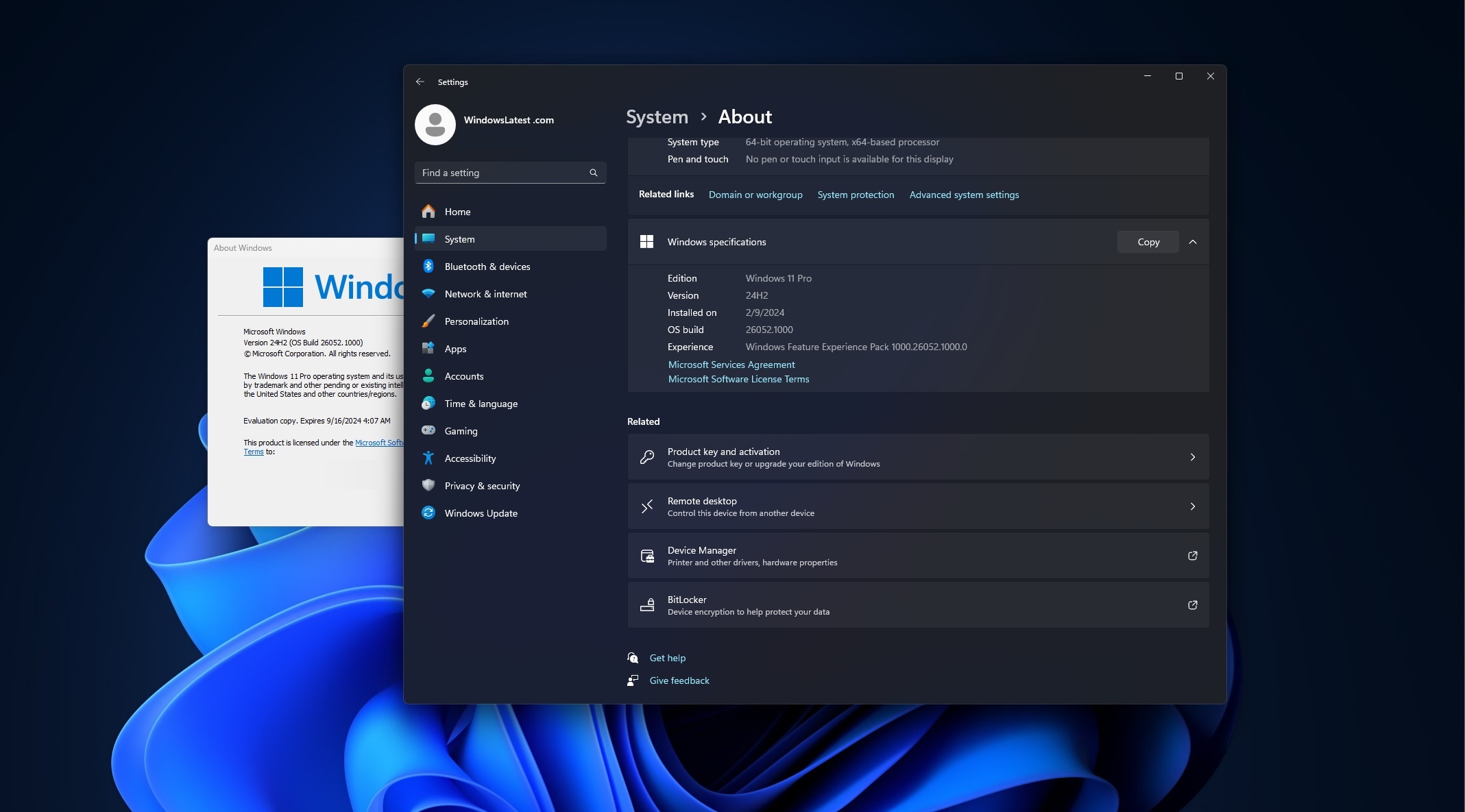In a recent announcement, Microsoft has officially put an end to the speculation surrounding the rumored release of Windows 12. The tech giant confirmed that the next major update will be Windows 11 24H2, slated for arrival in 2024. This move underscores Microsoft’s commitment to enhancing and refining the Windows 11 operating system rather than introducing a new iteration.
Microsoft’s decision to prioritize Windows 11 24H2 comes after months of speculation within the tech community regarding the possibility of a new Windows iteration. While rumors had circulated suggesting a potential release of Windows 12 in the latter half of 2024, Microsoft’s recent announcement has definitively quashed these speculations.
Integration of AI and Features in Windows 11 24H2
The upcoming Windows 11 24H2 update is set to bring significant enhancements to the operating system, notably through the integration of artificial intelligence (AI) technology. Microsoft aims to leverage AI to enhance various aspects of the user experience, with plans to incorporate AI throughout the entire OS. This strategic move reflects Microsoft’s commitment to staying at the forefront of technological innovation and delivering cutting-edge features to its users.
Windows 11 24H2 is expected to be a substantial update, incorporating advanced AI integration leveraging hardware-accelerated Neural Processing Units (NPUs) found in the latest “AI PCs.” This update aims to enhance user experience and performance while streamlining the operating system.
Additionally, Microsoft has announced its decision to revert to an annual release cycle for major feature updates, with Windows 11 24H2 being the sole significant update for 2024. This shift in strategy marks a departure from the previous approach of releasing major updates every few months. However, Windows 11 will continue to receive support through smaller feature drops known as “Moment” updates, ensuring that users receive regular enhancements and improvements to the operating system.
Microsoft’s latest move signals a clear strategic direction for the future of its Windows operating system. By focusing on refining and enhancing Windows 11 through the upcoming 24H2 update, the tech giant aims to consolidate its efforts and streamline its product offerings. This decision is likely driven by factors such as the ongoing challenges in gaining adoption for Windows 11 and the need to maintain cohesion within the Windows user base.
The decision not to pursue Windows 12 may stem from considerations regarding the current adoption rate of Windows 11. Despite efforts to promote the new operating system, Windows 11 continues to face challenges in gaining widespread acceptance, particularly in comparison to its predecessor, Windows 10. Introducing a third operating system could further fragment the user base, complicating compatibility and support issues.




